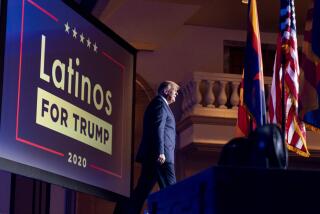TV Learns to Say No
After years of draining presidential press conferences of their value as sources of information and treating them like game shows, television may be redeeming itself by learning to say no.
For the second time in four months, after years of almost automatically saying yes, the industry turned down a White House request for free access to the networks last week to deliver what was essentially a political statement--in this case President Reagan wanting to talk about money for Nicaragua’s anti-Sandinista rebels.
For the most part, White House requests for free tube time involve issues that have less to do with national interests than with political interests. The last request that we can remember for time to say something that was not self-serving came from President Jimmy Carter, who wanted to announce that an attempt to rescue American hostages in Tehran had failed.
The dynamics of the destruction of the presidential press conference in the era of live coverage are complicated but not impenetrable. The press conference shifted from information to entertainment when television started broadcasting them live. Everybody in the room became a performer--the President acting presidential, reporters yapping for attention and reading prepared questions because no one wanted to get mike fright nationwide.
Because it has been so easy for Presidents to preempt the networks without being pestered by reporters, they have felt free to sidestep probing questions in press conferences. Worse, they have no longer needed press conferences to get their messages out.
The networks may never muster the courage to say no again. In that case nothing will change. If they do it with enough regularity, there will for the first time in years be an even chance that both Presidents and reporters will start taking press conferences seriously again. Stay tuned.
More to Read
Get the L.A. Times Politics newsletter
Deeply reported insights into legislation, politics and policy from Sacramento, Washington and beyond. In your inbox three times per week.
You may occasionally receive promotional content from the Los Angeles Times.










